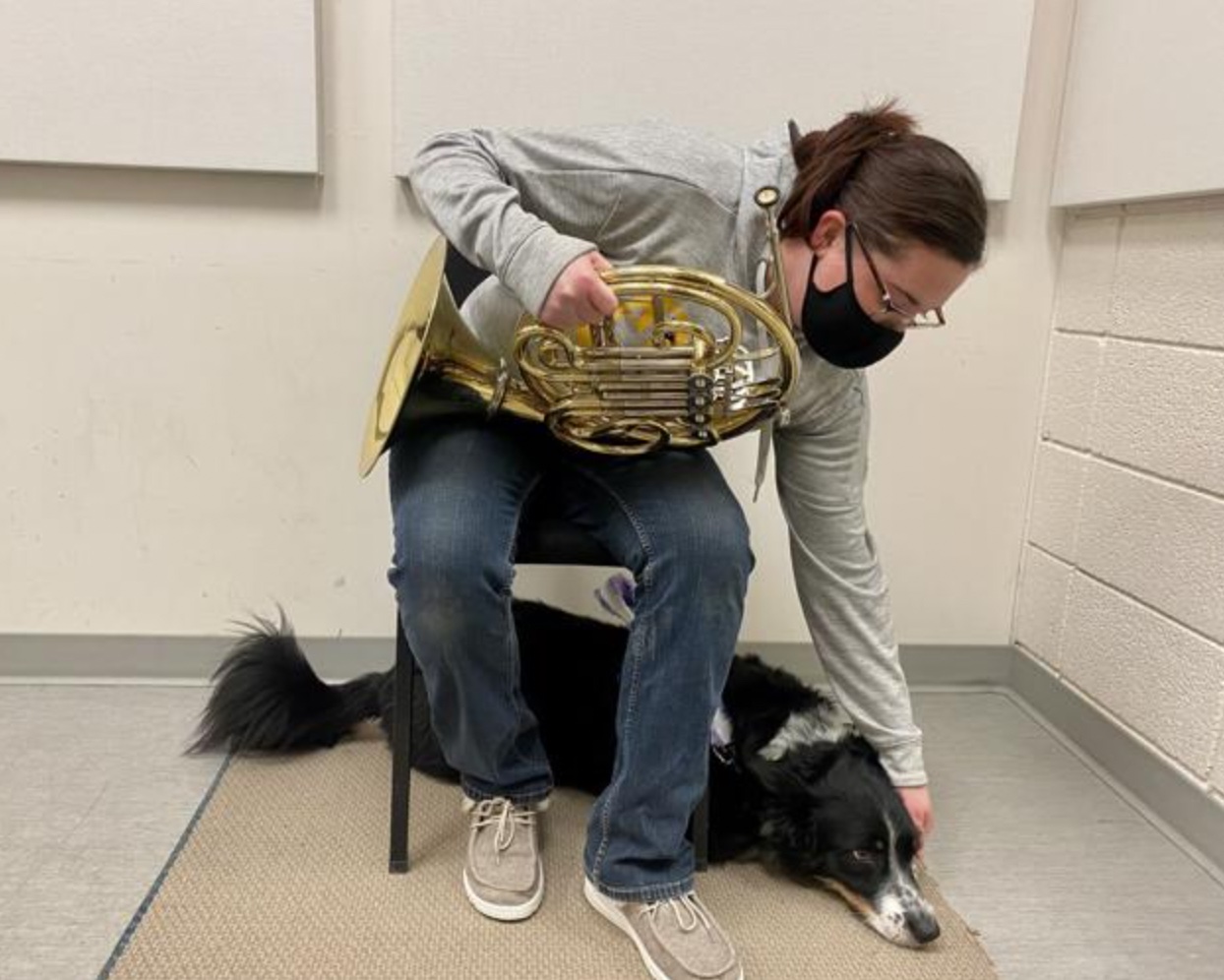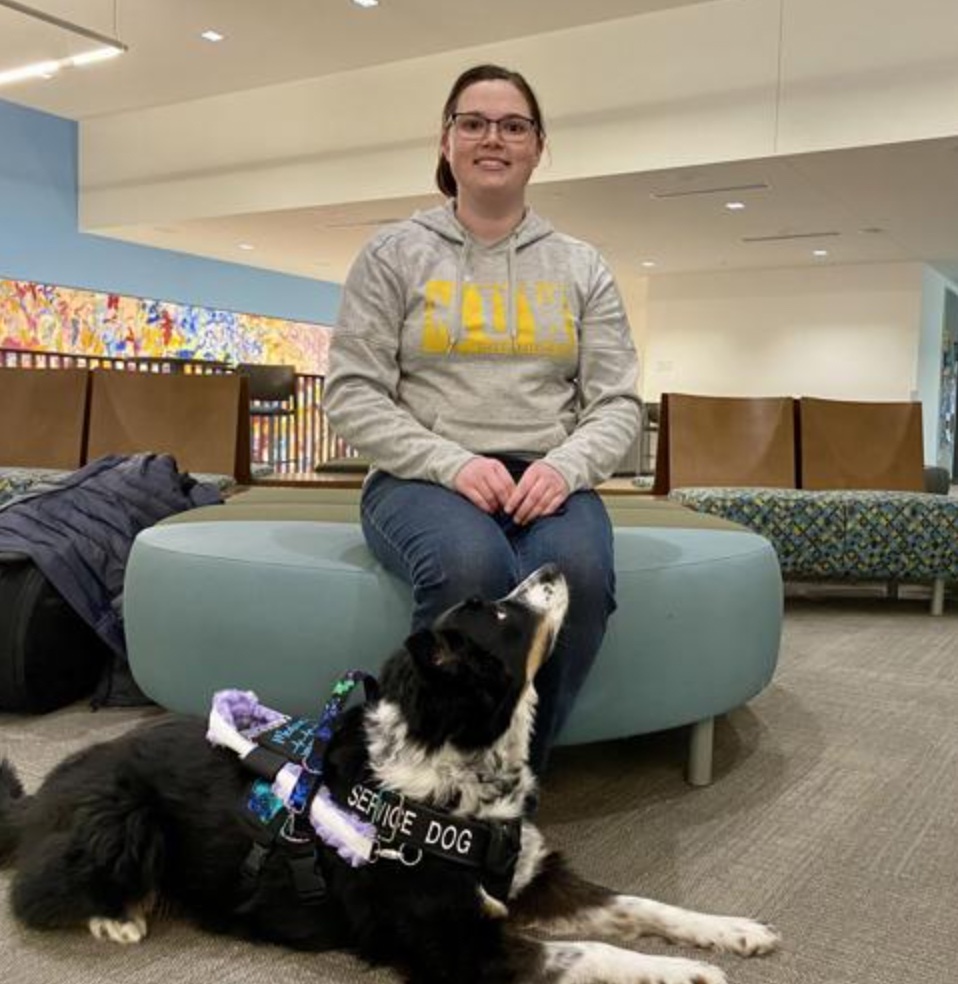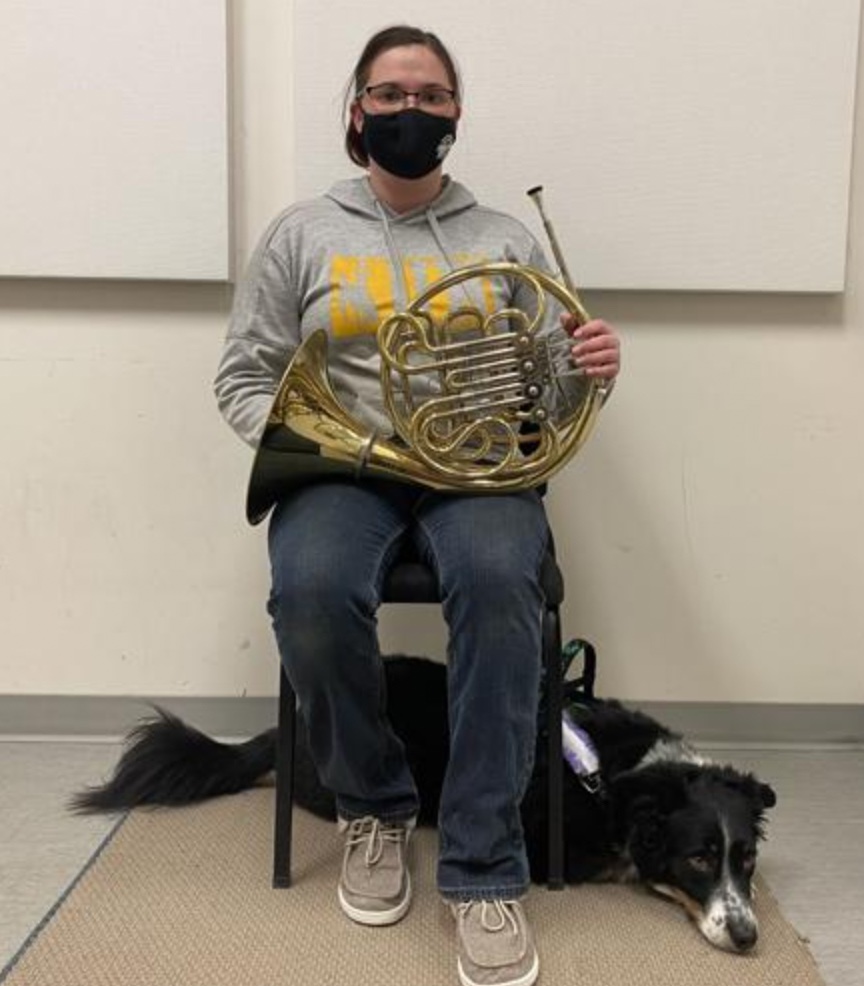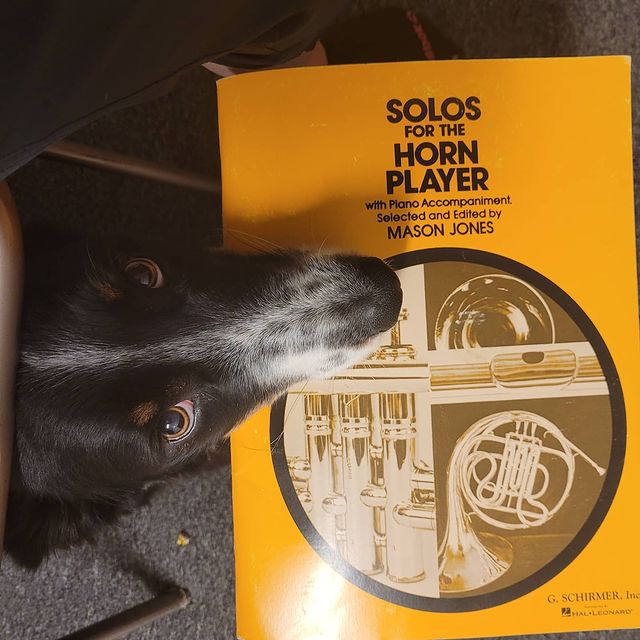Alaska the 2-year-old Australian Shepherd/Border Collie mix can’t play an instrument, but she still sits with the University of Wyoming Symphony Orchestra during concerts. Her handler, Paulina Gurevich, plays the french horn. As a service dog, Alaska is there so Gurevich can be, too.
Specially trained to assist Gurevich with her medical conditions, Alaska also patiently sits under the french horn player’s chair during loud concerts. Whether she likes orchestral music or not, Alaska knows she has to be there, ready for action.

What Alaska Does For Her Handler
Gurevich experiences seizures and suffers from post-traumatic stress disorder. Alaska helps her manage her symptoms and is prepared to assist in an emergency. More importantly, Alaska’s presence brings her security.
“(Having a service dog) allows me to be more independent,” Gurevich said. “[I used to] stay home a lot and wouldn’t be able to manage symptoms outside of the house. Now I’m able to travel pretty freely.”
When symptoms are coming on, Alaska alerts Gurevich by pawing or nudging her. Alaska is also trained in deep pressure therapy, where she uses her body weight to stabilize her handler.

Beyond what Alaska can do, the responsibilities of taking care of her give Gurevich purpose.
“[Alaska has] given me a reason to be productive day to day. Simply needing to take care of her gives me a reason to get out of bed in the morning.”
The next task Alaska will learn is to locate exits so she can lead her handler out of a room at the onset of symptoms.
Preparing Alaska For Orchestra Performances
With some guidance from professional trainers and the internet, Gurevich largely trained her service dog on her own, including teaching Alaska to stay underneath her chair while she plays the horn. They practiced this for a few weeks before attending a full rehearsal. Incredibly, Alaska transitioned to the louder sounds and large group easily.
“Sometimes she surprises me. It’s different when you have one chair and when you have 100 people,” Gurevich said.

UW Director of Orchestral Activities, Michael Griffith, called Gurevich a “fine musician and asset” and said Alaska’s presence doesn’t distract from anything.
“We want to bring the joy of making music not just to the audience, but to performers as well,” Griffith said. “We want good musicians, end of sentence.”
Facing Discrimination
Though it’s clear that Alaska’s presence is both essential and non-distracting, Gurevich commonly faces discrimination when trying to go places with her service dog.
The Americans with Disabilities Act requires that any place where the public is allowed must also allow service dogs. The Fair Housing Act requires landlords to provide reasonable accommodations to allow service dogs even on properties where pets are otherwise not allowed.
Still, Gurevich said she’s been scolded by business owners for bringing Alaska inside and been denied housing for needing her dog to come too.
“Service dogs are more than just companions. They are a tool for independence for many people, and they should be treated with respect.”

Hopefully, this story can help educate others on the importance of service dogs, the companions that are more than just pets.
H/T: Laramie Boomerang
Featured Image: Abby Vander Graaff/Boomerang
 Toledo, United States.
Toledo, United States.